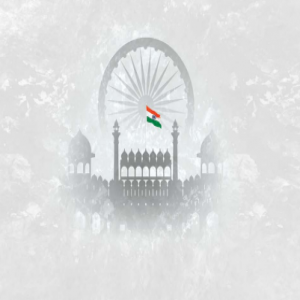
.png) Dr Suresh Mathew
Dr Suresh Mathew

India's majestic journey to independence was a testament to her unwavering spirit and unrelenting pursuit of freedom. Like a phoenix rising from the ashes, India emerged from the shackles of colonial rule on August 15, 1947, marking the beginning of a new era.
This triumphant moment was the precursor to a more significant milestone, with the Constitution of India coming into effect on January 26, 1950. On this momentous day, India not only donned the mantle of a Republic but also embarked on a path of inclusive governance guided by a visionary Constitution that had been carefully crafted. It gave the country a new face, making it a sovereign, socialist, secular, democratic republic, though the words 'Socialist and Secular' were added later through the 42nd amendment of the Constitution.
In the shadowy recesses of India's Republic, a sinister presence lurked, driven by a zealous ideology. The Rashtriya Swayamsevak Sangh (RSS) and its cohorts, who had once curried favour with colonial rulers and remained inert during the struggle for independence, now harboured a vision of a 'Hindu Nation-state'. The RSS and other Sangh Parivar offshoots couldn't digest and accept the Constitution as adopted by the Constituent Assembly. They considered it nothing but a 'copy and paste' work (to use modern terminology) from the constitutions of different Western countries. They found it lacking as it had not followed Manusmriti or similar texts of ancient India.
Their scant regard for the Constitution is exposed every passing day. Apparently, their ultimate aim is to rewrite it. This objective comes out—sometimes subtly, sometimes overtly—through their own motormouths. They consider 'secularism' a Western concept, and it should be removed from the Constitution.
As India celebrates the 76th Republic Day, it is essential to reflect on the country's journey as a Republic nation. The Constitution's framers, led by Dr Bhim Rao Ambedkar, envisioned a nation that would uphold justice, liberty, equality, and fraternity. But the truth is, more than ever before, the constitutional and fundamental rights are in danger today.
The party that came to power in 2014 has succeeded in putting India in a massive mess. The fundamental right to freedom of speech and ex
One of the most glaring examples of this trend has been the erosion of freedom of speech and ex
The rise of Hindutva politics has contributed significantly to the erosion of freedom of religion. The ruling Bharatiya Janata Party is promoting a majoritarian agenda that seeks to impose Hindu dominance over other religions. This has led to a surge in hate crimes, mob violence, and intimidation against minority communities.
Several States have enacted anti-conversion laws that restrict the right to convert to another religion. These laws are often used to target Christians and Muslims who are accused of indulging in "forced conversions." However, there is no ban on conversion to Hinduism. Hence, these laws are discriminatory, and they violate the fundamental right to freedom of religion.
The rise of cow vigilantism has also contributed to the violation of freedom of religion. Hindu extremist groups have taken to attacking Muslims and Dalits, accusing them of consuming beef or smuggling cattle. These attacks often result in mob violence and murders.
The government's reluctance to unequivocally condemn and act against such aggression has fostered a dangerous climate of impunity. This tacit permissiveness has emboldened extremist elements, who now strike at minority communities with a brazen disregard for consequences, leaving trails of fear and suffering in their wake.
A pall of despair has descended upon the Christian community as a relentless wave of violence and intimidation has swept across the nation, leaving in its wake a trail of devastation and heartbreak. Like cancer, Hindu extremism has metastasized across the country, its tentacles reaching the very fabric of secular society.
The perpetrators of these heinous crimes, emboldened by the government's tacit acquiescence, have acted with liberty, their malevolent actions fuelled by a toxic cocktail of nationalism and sectarianism. The Modi government's response to these atrocities has been halfhearted, its words of condemnation mere lip service, devoid of any meaningful action.
India's economic indices, in particular, have taken a hit. The rupee has fallen to its lowest-ever level. The country's ranking in the Ease of Doing Business index has also slipped, and inflation has remained high, breaching the RBI's target for several months. Furthermore, India's global rankings in terms of human development, education, and healthcare have declined. The country's performance in the Global Hunger Index has been disappointing, and the gap between the rich and the poor has widened.
The Modi government's focus on geopolitics and efforts to establish India as a major global player has come at the expense of domestic economic and social backwardness. While the government's diplomatic efforts have yielded some successes, the domestic economy and social indices have suffered greatly.
It is time for the government to turn its attention to the domestic front and address the pressing issues facing the country. This includes tackling inflation, boosting economic growth, and improving human development indices.
In summation, the deepening crisis in safeguarding minority rights under the Modi administration demands urgent redressal. The government must reaffirm its commitment to the principles of justice, equality, and freedom, safeguarding the rights of all citizens irrespective of faith, creed, or language. Only then can India regain its lost ground in the global indices and become a truly prosperous and democratic republic.